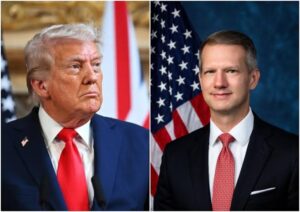
Alexander Zverev’s suspension by the ATP marks a significant moment in tennis

In a significant development in the world
of tennis, the Association of Tennis
Professionals (ATP) has announced a
suspension for German tennis star
Alexander Zverev. This decision comes
after Zverev made controversial
statements that have stirred
considerable debate within the sport and
beyond.
The ATP’s disciplinary action against
Zverev, which includes a temporary
suspension, is reportedly linked to
remarks he made during a recent
interview. While the specific content of
Zverev’s statements has not been fully
disclosed by the ATP, it is clear that the
remarks were deemed by the governing
body to be in violation of its code of
conduct.
Zverev, who has been a prominent figure on the ATP tour and has seen significant success in recent years, including winning the ATP Finals and a silver medal at the Tokyo Olympics, has faced criticism for his outspoken nature on various issues. This latest controversy, however, represents a more serious challenge to his career and reputation.
The ATP’s decision to suspend Zverev
highlights the organization’s
commitment to maintaining a respectful
and professional environment within the
sport. The ATP’s code of conduct outlines
strict guidelines for players, emphasizing
the importance of sportsmanship and
respect both on and off the court. The
ATP has not provided detailed reasons
for the suspension, citing ongoing
investigations and confidentiality.
In response to the suspension, Zverev
has issued a statement expressing regret
for the impact of his comments. He has
apologized to the fans, his fellow players,
and the ATP for any offense caused.
Zverev’s statement indicates that he is
committed to addressing the issues
raised by his remarks and is prepared to
work with the ATP to rectify the
situation.
The suspension has sparked a broader conversation about the role of athletes in addressing sensitive topics and the boundaries of free speech. Some have defended Zverev, arguing that athletes should have the freedom to express their views without facing severe repercussions. Others, however, believe that the ATP’s action is necessary to uphold the values of the sport and ensure that all players adhere to established standards of conduct.
The impact of this suspension on Zverev’s career is yet to be fully understood. While he is barred from participating in ATP-sanctioned events during the suspension period, he will have the opportunity to return to competition once the matter is resolved. The suspension could affect his ranking and participation in major tournaments, which may have long-term implications for his career trajectory.
The ATP’s move also underscores the broader issue of how sports organizations handle off-court behavior of players. As the boundaries between personal opinions and professional conduct continue to blur, sports governing bodies are increasingly faced with the challenge of balancing respect for individual expression with the need to maintain a positive and respectful environment within their organizations.
As the tennis world reacts to the news,
the focus will likely shift to how Zverev
navigates this challenging period and
how the ATP manages its role in
enforcing its standards. The situation
remains dynamic, with further
developments expected in the coming weeks.
In conclusion, Alexander Zverev’s suspension by the ATP marks a significant moment in tennis, reflecting the ongoing tension between athletes’ freedom of expression and the governing bodies’ efforts to enforce professional standards. The resolution of this case will be closely watched by fans, players, and officials alike, as it may set important precedents for how similar situations are handled in the future.







